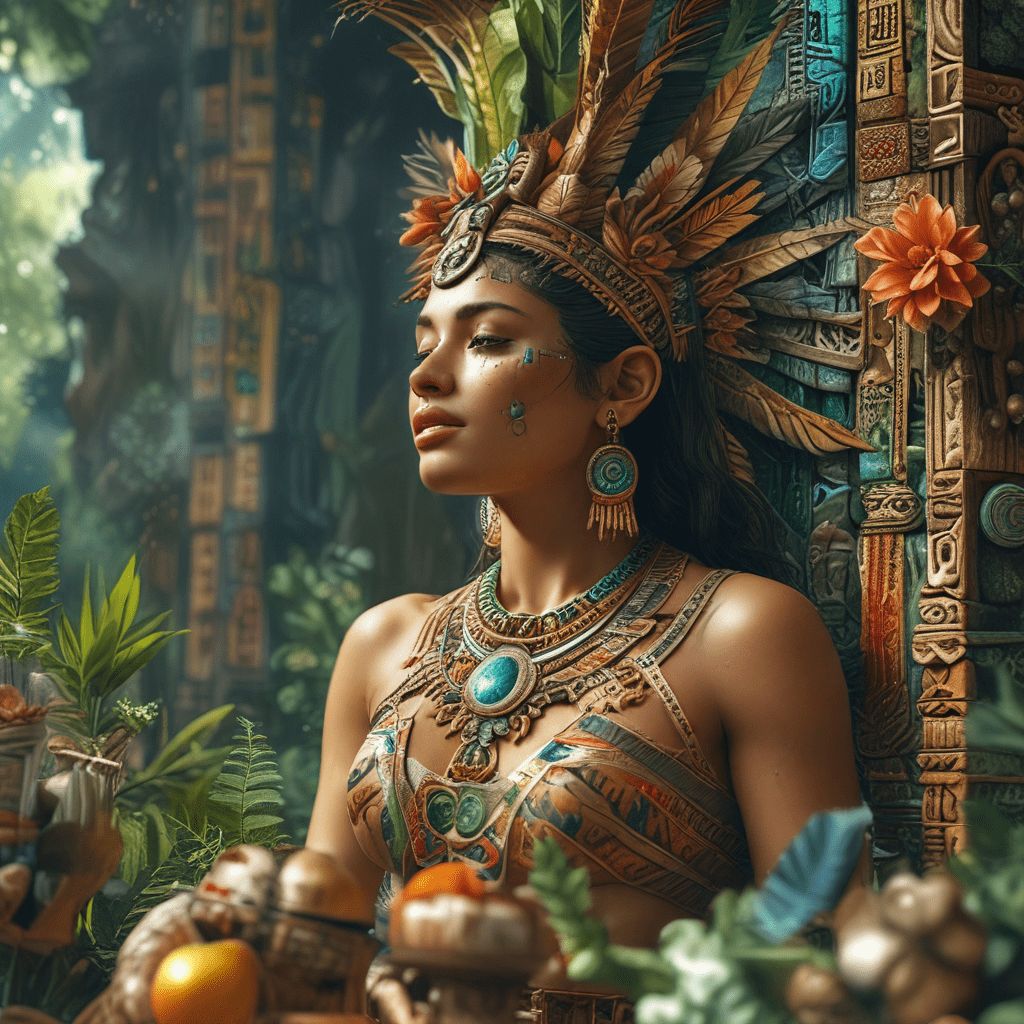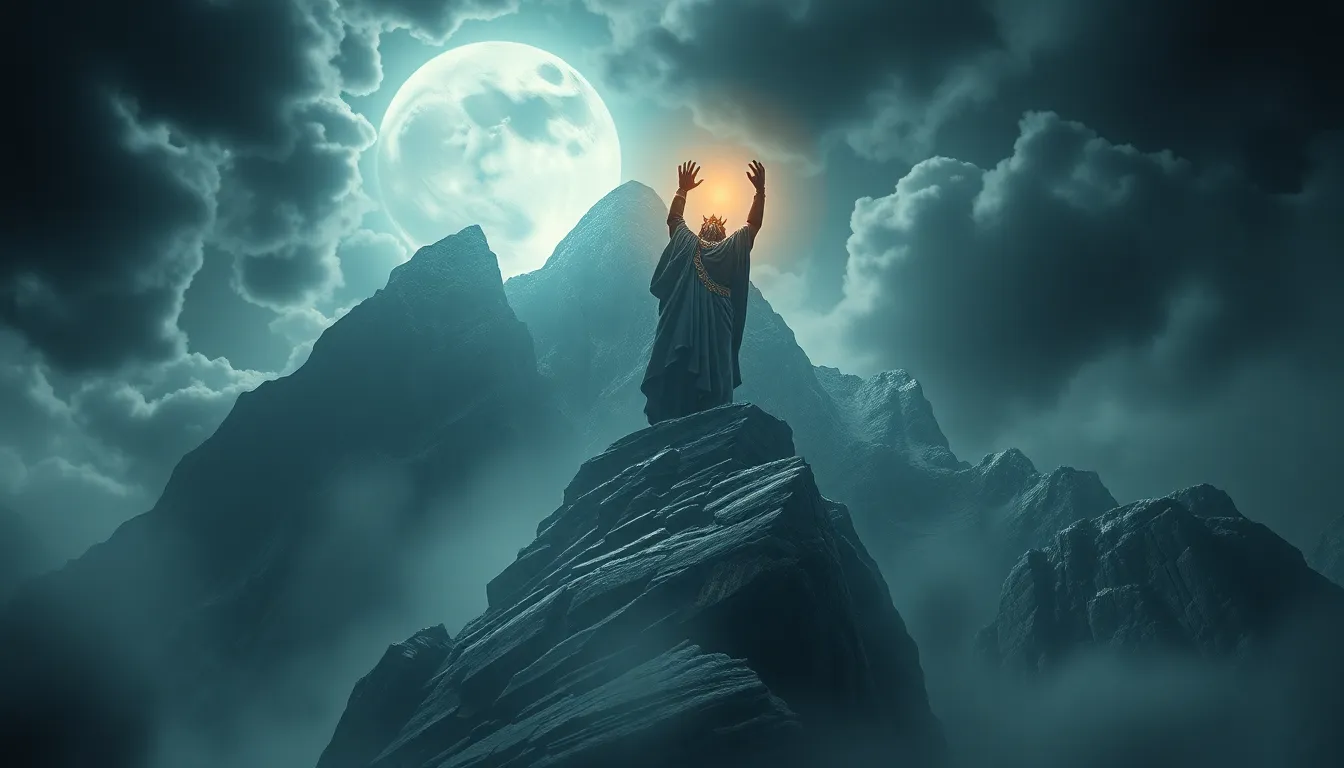The Journey of the Cosmic Scholar: Myths of Knowledge and Wisdom
Introduction: Defining the Cosmic Scholar
The term “Cosmic Scholar” evokes the image of a seeker of knowledge who transcends the boundaries of time and space. This figure embodies the quest for understanding that is both universal and deeply personal. Throughout history, knowledge and wisdom have held great significance in various cultures, often revered as sacred pursuits that lead to enlightenment and personal growth.
In many traditions, knowledge is seen as a gift from the divine, while wisdom is viewed as the application of that knowledge in a meaningful way. Myths surrounding wisdom and knowledge not only highlight their importance but also illustrate the journeys undertaken by those who seek them. This article will explore the journey of the Cosmic Scholar, the myths that surround knowledge and wisdom, and how these themes have evolved over time.
The Origins of Knowledge in Ancient Civilizations
Knowledge in ancient civilizations was often intertwined with the divine. In Mesopotamia, the Sumerians believed that knowledge was bestowed upon humanity by the gods. The Epic of Gilgamesh, one of the earliest known literary works, illustrates the quest for knowledge and immortality.
In Egypt, the god Thoth was associated with writing, wisdom, and the moon. Thoth was believed to have invented hieroglyphs and was often depicted as a scribe, recording the deeds of the gods and humans alike. Similarly, in Greek mythology, Athena, the goddess of wisdom, represented strategic warfare and intellect. Her myths emphasize the importance of knowledge in overcoming challenges and achieving greatness.
Oral tradition played a crucial role in preserving this knowledge. Stories, fables, and parables were passed down through generations, ensuring that wisdom was not lost but rather transformed and adapted over time.
The Archetype of the Wise Sage in Mythology
Across cultures, the archetype of the wise sage has emerged as a key figure in mythology. Characters such as Merlin from Arthurian legend and Confucius in Chinese tradition embody the qualities of wisdom, guidance, and insight. These figures often serve as mentors, imparting knowledge and life lessons to the heroes of their respective narratives.
Common traits of the wise sage include:
- Deep understanding of the human condition
- Ability to see beyond the surface
- Compassion and empathy towards others
- Use of parables and metaphors to convey wisdom
Lessons imparted by these figures remain relevant today, reminding us of the enduring nature of wisdom and the importance of seeking knowledge throughout our lives.
The Role of Myth in Shaping Understanding
Myths serve as powerful vehicles for conveying complex ideas about knowledge and wisdom. They encapsulate cultural values and beliefs while providing insights into the human experience. Storytelling has a profound impact on the pursuit of truth, as narratives allow individuals to explore abstract concepts in a relatable manner.
For example, the myth of Prometheus, who stole fire from the gods to give to humanity, highlights the dual nature of knowledge. It serves as a metaphor for enlightenment but also warns of the consequences of defiance against divine order. Such myths illustrate that the journey of knowledge is fraught with challenges and moral dilemmas.
The Cosmic Scholar’s Journey: Stages of Enlightenment
The journey of the Cosmic Scholar can be likened to Joseph Campbell’s Hero’s Journey, which outlines a series of stages that a hero undergoes in pursuit of a goal. The stages can include:
- Initiation: The call to adventure, where the scholar recognizes the need for knowledge.
- Trials: Overcoming obstacles that test the scholar’s resolve and understanding.
- Mastery: Achieving a level of knowledge that allows the scholar to contribute back to society.
Each stage is significant in the context of knowledge acquisition, emphasizing that learning is a lifelong process that involves both triumphs and tribulations.
The Intersection of Science and Myth
Ancient myths have often foreshadowed scientific discoveries, highlighting the intricate relationship between mythological narratives and modern scientific thought. For instance, the myth of Phaethon, who attempted to drive the chariot of the sun, can be seen as an early exploration of astronomy and celestial mechanics.
These stories not only inspired inquiry but also provided a framework for understanding the natural world. The interplay between myth and science illustrates that the quest for knowledge is a multifaceted journey that encompasses both imaginative and empirical pursuits.
Wisdom in the Age of Information: A Modern Perspective
In today’s digital age, the challenge of discernment has become more pronounced. With an overwhelming amount of information available at our fingertips, the ability to critically assess and navigate this landscape is crucial. The Cosmic Scholar emerges as a modern archetype, representing the need for wisdom amidst chaos.
Critical thinking plays a vital role in this endeavor, allowing individuals to sift through misinformation and arrive at informed conclusions. The journey of the Cosmic Scholar today involves not only the acquisition of knowledge but also the application of wisdom in a complex, interconnected world.
Cultural Variations in the Pursuit of Knowledge
The pursuit of knowledge varies significantly across cultures, shaped by historical, social, and philosophical contexts. Eastern philosophies often emphasize collective wisdom and harmony with nature, while Western traditions may focus on individual achievement and rational inquiry.
Comparative analyses reveal that:
- Eastern traditions, such as Buddhism, view wisdom as a path to enlightenment through self-awareness.
- Western philosophies, such as those of Aristotle, prioritize empirical observation and logical reasoning.
Understanding these cultural contexts enriches our appreciation of wisdom myths and highlights the diverse ways in which knowledge is pursued globally.
The Impact of Technology on the Journey of Knowledge
Technology has profoundly influenced learning and knowledge dissemination, offering both opportunities and challenges. Online platforms have democratized access to information, allowing scholars and learners to connect across the globe. However, this accessibility also raises concerns about the reliability of sources and the potential for information overload.
The future implications for the Cosmic Scholar in a rapidly evolving technological landscape include:
- The necessity for digital literacy and critical evaluation of sources.
- The potential for innovative learning methods, such as virtual reality and AI-assisted education.
- The importance of maintaining a humanistic approach to knowledge that values wisdom alongside technological advancement.
Conclusion
The journey of the Cosmic Scholar is a timeless narrative that transcends cultures and epochs. Myths of knowledge and wisdom offer profound insights into the human experience, guiding us through the complexities of our existence. As we navigate the modern world, the lessons from these ancient tales remain relevant, reminding us that the pursuit of knowledge is not merely an intellectual endeavor but a holistic journey toward enlightenment and understanding.



